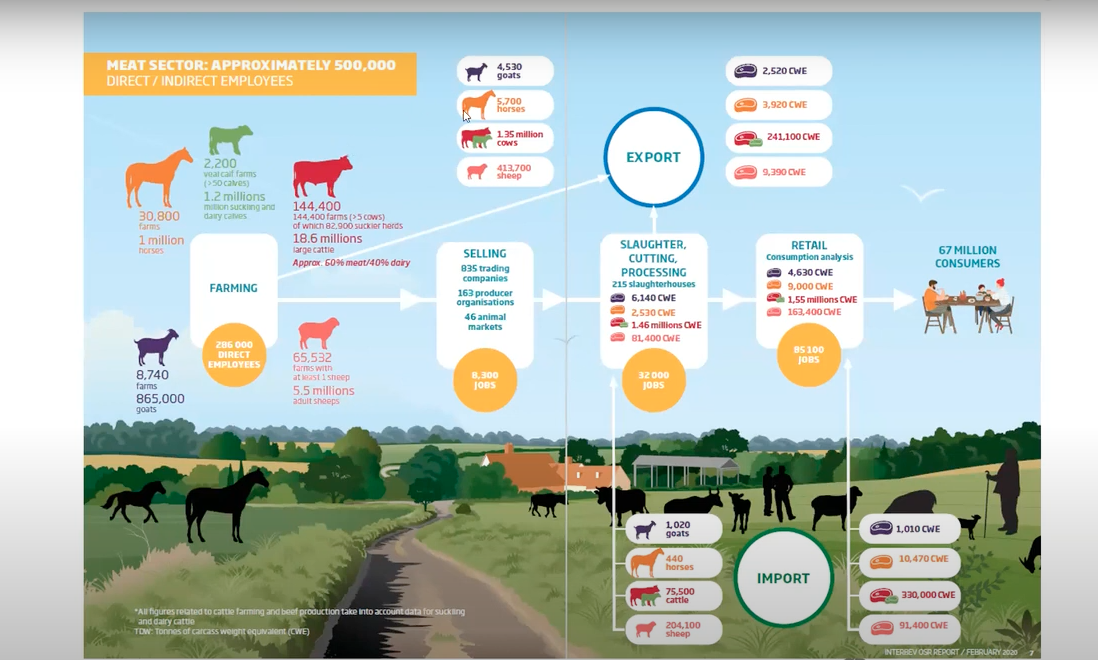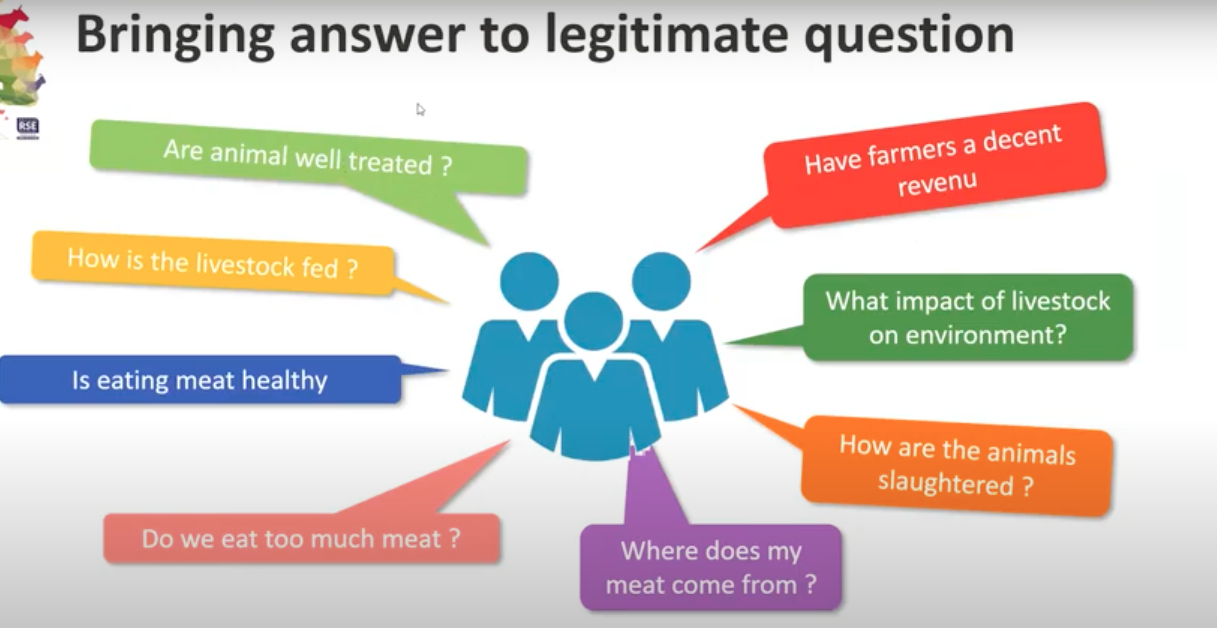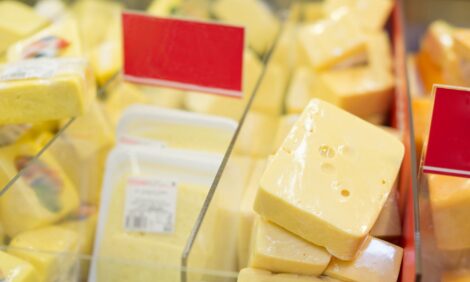



BovINE: Societal pact addresses sustainability of French livestock sector
In recent years, the livestock sector’s social license to operate has been challenged by concerns that its impact on the environment is too great. In France, an inter-professional group, Interbev, proactively addresses societal concerns by bringing together key stakeholders to discuss, research and improve aspects of the sector, writes Melanie Epp for The Cattle Site.The idea is to create a sustainable model that is accepted by all. Caroline Guinot of Interbev explained how the pact works at a recent BovINE public meeting on the sustainability of European beef farming.

Founded in 1979, Interbev is an inter-professional association that brings together key stakeholders within France’s livestock sector, including breeders, distributors, processors and retailers, and even NGOs and consumers. There are 22 national organizations, 12 regional committees, and five sectors, namely bovine, calves, sheep, horses and goats, under its umbrella.
The aim of the association is to have open and meaningful dialogue with stakeholders to help carry out work that allows for collective improvement. Areas of concern include the environment and animal welfare practices.
The association also aims to supply high quality meat with priority given to official quality and origin labels, in particular Label Rouge and organic. Regular assessments enable them to better meet societal expectations.
Finally, Interbev promotes fair pay for all workers within the sector.
That same year, Interbev developed the Pact for Societal Commitment. The aim of the pact is to supply answers to sometimes-difficult questions posed by the media, NGOs and consumers: Are animals treated well? How is livestock fed? Is eating meat healthy? Do we eat too much meat? Do farmers receive a fair wage? How does livestock production impact the environment? How are animals slaughtered?
Guinot said that while these questions are certainly legitimate, they are sometimes dealt with in a very aggressive manner, which makes conversation difficult. Through the pact, Interbev members evaluate these questions in search for viable solutions and areas for improvement.
Consultations began in 2013, and focused, initially, on suckler cattle breeding climate. By 2015 the group published a document outlining its findings. The document was ready in advance of Common Agricultural Policy (CAP) 2021 talks in 2015.
“We were able to present it in front of decision makers,” said Guinot. “This was very important to show our commitment towards curbing the CO2 emissions of our sector.”

The paper’s acceptance at the European level gave the group the drive it needed to move forward with the pact, this time taking on the sector’s overall sustainability. In 2015, the United Nations adopted a program of sustainable development goals to achieve by 2030. Interbev’s Pact for Societal Commitment was developed with the Sustainable Development Goals most relevant to the French livestock sector in mind.
Again, the idea was to take a collective approach that encouraged continuous dialogue between all parties, but always with the latest research and development in mind. The framework provided helps companies that want to launch their own sustainability goals, said Guinot, and gives them something to benchmark against.
In 2017, the group worked closely with NGOs to tackle questions around animal welfare. One of the areas of discussion, for example, was vaccine use.
“We start by sharing an initial assessment of the situation and then try to identify what we agree on and disagree on,” said Guinot. “We try to reaffirm and insist on the vital importance of cattle breeding in terms of its social and economic impact for the different countries.”
While working with NGOs, Interbev addresses questions around sustainability and the importance of meat in the diet. In terms of sustainability, the three main areas of focus include environmental protection, climate change mitigation, on-farm autonomy and fighting against the importation of meat produced in non-compliance with the country’s production standards. With regards to welfare, the group evaluated transport to slaughterhouses, and fair pay for those working in the sector.

Once discussions and analysis were complete, Interbev put together a Sustainability Report. Published in 2020, the report outlines the French meat and livestock industry’s commitment to sustainability and responsibility.
Its success would not be possible without clear and open communication between all of the sector’s stakeholders, including NGOs and consumers. Guinot emphasized the importance of working with a third-party mediator present during discussions. Before talks began, factual information was shared between all parties, and commonly used vocabulary was clearly defined.
Finally, Guinot underlined the importance of including NGOs in the forum and openly discussing issues that are important to them. But perhaps most important, she said, is that these conversations take an intersectional approach. Only then will they be able to successfully address societal concerns.


